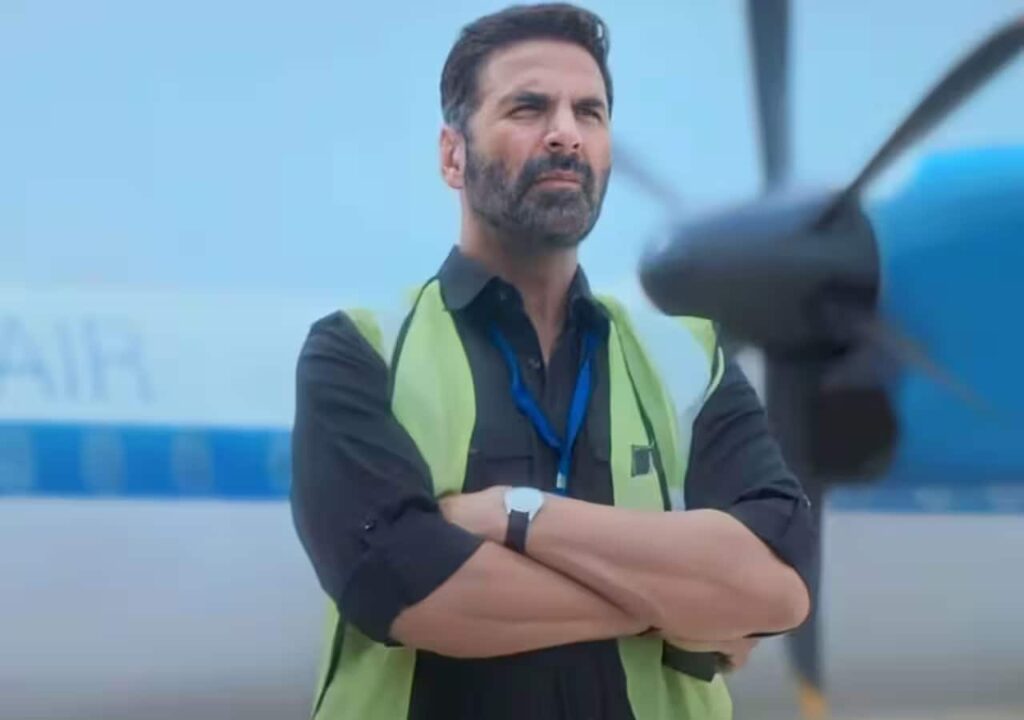It is inevitable that one tends to keep comparing Sudha Kongara’s Sarfira, an official remake of her 2020 film, Soorarai Pottru, with the original. Especially since Sarfira is almost a scene-by-scene copy of the Tamil film starring Suriya and Aparna Balamurali. Akshay Kumar and Radhika Madan take over the lead roles in the Hindi version, which is likely to be far more watchable for those who haven’t seen the earlier film.
Before the proliferation of streaming services, remakes of popular regional content by Bollywood and vice versa used to be a normal endeavor. But today with most films that have been released theatrically finding themselves on OTT platforms and that too with English subtitles, you sometimes wonder the wiseness of the very decision to make Sarfira as Soorarai Potru had not only been released directly through Prime Video (due to the Covid-19 pandemic) in November 2020, but a Hindi dub of the film, Udaan, was already a streaming choice on Prime as well. The film had also made quite the splash at the 68th National Awards winning 5 awards for Best Film, Actor, Actress, Screenplay and Background Score respectively. That it won amidst a serious clash of interest with Suriya’s manager S Thangadurai being on the jury is a story for another day.
Coming back to Sarfira, the film, like Soorarai Pottru, is based on the life of GR Gopinath, the founder of the low-cost airline, Air Deccan, taking off from his memoirs, Simply Fly: A Deccan Odyssey. The film follows Vir Mhatre (Akshay Kumar), an ex-air force pilot with a dream to start a low-cost aviation service to allow flying as an affordable travel opportunity for every individual in the country thereby also breaking the class and caste barrier. His entrepreneurial journey is marked by several setbacks, primarily engineered by Paresh Goswami (Paresh Rawal), the owner of Jaz Airlines, who is averse to sharing flight seats with the lower-income strata of the country. Vir, meanwhile, would be supported by his two best friends and his wife Rani (Radhika Madan), who is herself an entrepreneur, running a bakery of her own, and the breadwinner of the family.
As mentioned, Sarfira is mostly a carbon copy of its original. Thus, the central premise, major conflict points and struggles faced by Mhatre remain the same in both films. And while Akshay Kumar has his moments in the film, he pales in comparison to Suriya’s passionate performance, the latter’s eyes evoking smouldering emotion far better than many actors. Still, Kumar does bring his brand of sincerity to the film and his sequence of breaking down at the airport as well as the moments he shares with his mother (played by a wonderful Seema Biswas), are quite effective. While the husband-wife relationship is sexy and fiery in the Tamil version, here it is more toned down though thankfully the manhandling scene in the original is replaced here by a heated argument instead. Also, an attempt is made to justify the age difference between Vir and Rani. To her credit, Radhika Madan delivers a strong performance that highlights the character’s independent streak and presence of mind rather well. The rest of the changes between the two versions from the original are mostly aesthetic changes. The presence of a larger budget in Sarfira allows for some of the VFX shots of the airplane to be improved, as well as giving a few minutes of extra time for the camera to luxuriate in the opening sequence.
The bigger issue with Sarfira is how it carries over the flaws of the original – the conventional nature of the biopic, the surface-level acknowledgement of caste in a throwaway dialogue, the hammy performances of Paresh Rawal as well as the other antagonists, and the movie’s propensity to lean into heavy melodrama – into the current film as well. Rawal, in particular, has no more dimensionality other than that of a caricature-like moustache-twirling villain. The runtime is largely punishing, primarily because of the conventional nature of the screenplay, with the addition of song and dance sequences. GV Prakash Kumar’s music (a remnant of the original) further reinforces the melodramatic aspect of the film.
Overall, Sarfira does come short of Soorarai Pottru. However, as an Akshay Kumar-led movie, this contains one of the better performances he has delivered within the last three years. It could also turn out to be one of the more decent Hindi films of the year, at least for audiences that haven’t seen the original.
Hindi, Drama, Biopic, Color



Well, Bollywood is still far from realism that’s required for a subject like this. The film doesnt really explain why was this low cost aviation important for India’s growth & development & How- a main reason why this film fails to connect and it doesn’t mention anywhere – why it finally shut shop. As far dialogues are concerned- in an effort to stay rooted by some characters speaking kannad, sometimes Marathi, sometimes Hindi & English – it becomes a rootless khichdi! Akshay- known to be a limited actor but was still a lot better in AIRLIFT – also based on a true story.